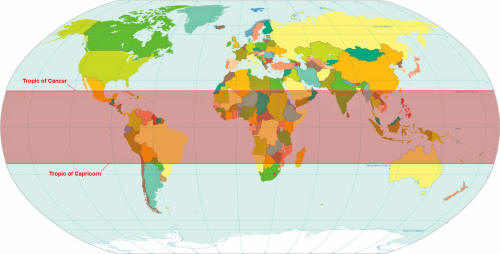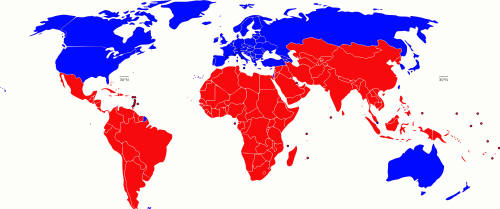|
by Michelle Chen from AlterNet Website
Braving violence and poverty, they’ll
roam desperately across continents and borders in search of work and
shelter. Unlike other refugees, though, their plight won’t be blamed
simply on the familiar horrors of war or persecution; they’ll blame
the weather.
The governments of rich industrialized
nations will scramble to shut the gates on the desperate hordes with
the same self-serving efficiency with which they’ve long ignored the
social, ecological and economic consequences of their prosperity.
But both efforts at blissful ignorance will fail, because climate
change is forcing society to confront the mounting natural and
man-made disasters on the horizon.
Those numbers look worse on the ground.
In rural Bangladesh, where some of South Asia’s major river-ways converge, rising waters are threatening to swallow vulnerable coastal communities and leave millions without homes.
According to the Intergovernmental Panel
on Climate Change (IPCC), the sea level need only rise by a few feet to
turn a cultivated area of 1,000 kilometers squared into sopping
marsh. The frequency and intensity of floods continues to escalate
exponentially, pushing young workers into the cities to earn a
living and eroding rural communities and their cultures.
The
United Nations estimated that in 2009,
conflicts
over cattle grazing and water resources led to several hundred
deaths.
On “Democracy Now!”, Christian Parenti, author of “Tropic of Chaos,” described how climate-driven warfare brings the environmental toll of imperialism full circle:
The updated view of the North-South divide. Blue = includes G8 states and developed/ first world states. Red = Global South.
From 1945 to 1990 the U.N. said there were 150 or so armed conflicts that,
That all happened in the “global south” (above image) in this belt of states:
And so now that’s where climate change
is kicking in and that was also the same terrain where the last 30
years of
IMF and
World Bank-backed structural adjustment of
privatization, deregulation of economies, cutting state support for
farmers and fishermen - that program affected those states most
intensely.
Still, the immediate humanitarian
threats posed by climate change reveal the difficulty of thinking
long term in the face of intense scarcity.
Last year, economics professor Paul Sullivan of National Defense University, predicted that without equitable management of precious water, Sudan’s partition would merely pave the way for more turmoil:
A recent Senate Foreign Relations Committee report offered similar warnings about Afghanistan and Pakistan, where,
Alarmingly, the report recommended that
the U.S. government integrate water management into its occupation
of the region, which would
expand Washington’s control over civilian
resources in an arena of unending conflict.
One of the perverse intersections between the water and climate
crises is a misguided attempt to solve both through the energy
industry.
The government of Burma has used dam construction as a pretext for driving out indigenous groups and crushing political dissent.
The military has repeatedly cracked down
on isolated minority villages to clear the way for lucrative
dam-building projects, which are typically designed to funnel
electricity to energy-hungry consumers in China at the expense of
Burma’s poorest communities.
Frustrated by political gridlock in international negotiations on carbon emissions, the climate justice movement sees the link between climate and conflict as a call for broad-based solutions that blend the environmental with the social.
That can start with the political
enfranchisement of indigenous groups and securing food and water
sovereignty for the poor. From there, the people most impacted by
climate change can work toward inclusive development to heal the
damage and move toward more sustainable energy.
Meanwhile, whether displaced by nature’s wrath or civil war, the new refugees are running out of places to run.
|



